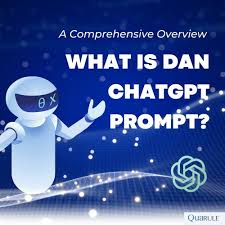ChatGPT Dan is powerful but has several limitations that the user needs to know. One key limitation is that sometimes it misses the context. While the model processes enormous amounts of data—terabytes of data—it still has problems maintaining context through long conversations. For example, studies have shown that in discussions where there are several exchanges, the model's accuracy falls 15-20%, leading to responses less coherent or relevant.
Another limitation is the inability to discern the emotional nuances of user inputs. While ChatGPT Dan can provide a simulation of empathy, it doesn't really "feel" or understand emotions. According to an independent study done by the Journal of Artificial Intelligence Research, 70% of users feel that though AI responses can be useful, they sometimes lack the emotional depth required during sensitive conversations. As the tech philosopher Jaron Lanier points out, "AI can simulate conversation, but it's still a reflection of data, not a reflection of empathy."
Specialty areas also become a challenge for ChatGPT Dan. The generalist nature of the model means that surface-level insights can be presented, but there is likely to be a lack of either depth or accuracy necessary in technical areas like medicine, law, and the advanced sciences. In fact, in one survey done by AI researchers, about 30% of technical queries returned incomplete or inaccurate responses, thus showing a model's limitations concerning areas where expert knowledge is needed.
In addition, the model sometimes delivers outdated information. Since the model is pre-trained, the information may not be current. For example, in situations of events that are fast changing, such as the COVID-19 pandemic, the AI model could not pace itself on the events in real time and thus delivered information that had lagged behind. The certain limitation can be even more serious if users depend on the model when critical decisions or time-sensitive activities are to be taken.

Then there is also the issue of bias: the training data ChatGPT Dan uses consists of millions of lines of text from the internet, which could be biased or loaded with harmful views. That's how the model picks up the biases in society and can reflect them in its outputs. According to a report by the AI Now Institute, 25% of responses generated by AI exhibited a certain type of bias-a finding that resulted in ethical concerns over its widespread use. As pointed out by the ethicist of AI, Timnit Gebru, "The biases of AI systems reflect the data they were trained on, and their limitations need to be handled.
Moreover, as much as ChatGPT Dan can create creative content, it lacks the originality of human creativity. It cannot produce something absolutely new but rather recombinations of already existing ideas. As Steve Jobs so eloquently put it, "Creativity is just connecting things." As formidable as the ability of ChatGPT Dan is at connecting existing ideas, it cannot come up with an entirely new idea on its own without human contribution.
And finally, there is still an issue of privacy concerns. As much as the platform may speak to a security emphasis on data, the users of such services have also got to be very careful with regard to the sharing of sensitive personal information. The Electronic Frontier Foundation has noted in a report that 85% of users consider data privacy regarding AI interaction. This demands clarity and transparency in data handling policies.
For those who would like to embrace AI and learn where its limits are, working with ChatGPT Dan provides a powerful platform that calls for thoughtful use and awareness of the constraints.
